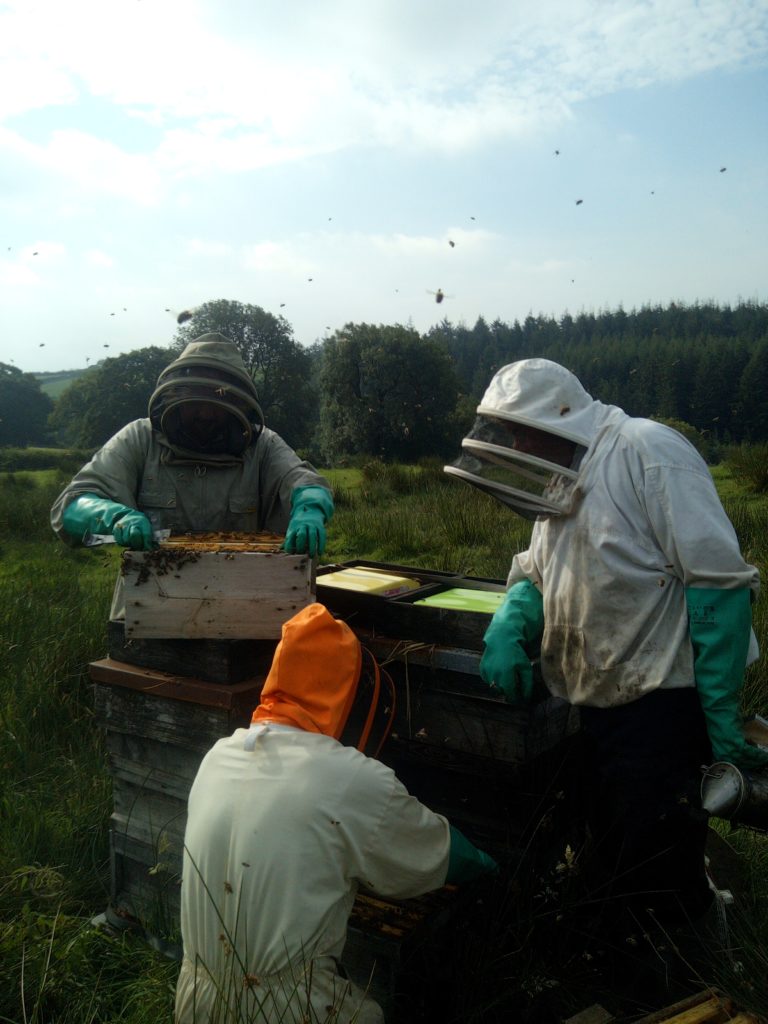Beekeeping involves taking on the responsibility of caring for and maintaining one or more hives and their colonies. When you take on the responsibility of a hive, its important to understand the principles of beekeeping and some core facts. By working to principles with underlying facts, you can keep beekeeping simple. Whilst there is much emphasis on beekeeping techniques and manipulations, learning these by rote can lead to beekeeping by habit rather than by assessing the need of the colony.
By working to learn the needs and requirements of a honeybee colony and your responsibilities as a beekeeper, you will be better placed to make decisions for the benefit of your hive.
The Principles of Beekeeping
Opinions on methods of beekeeping are many and varied. It can be confusing when beginning your beekeeping journey, and even when well on your way, as to what beekeeping methods to adopt. Here we will lay out the simple principles of beekeeping.
These principles are not methods, but an underlying structure to help guide your beekeeping. They will help provide a framework off of which you can adopt methods and techniques and employ them appropriately.
Principles of Beekeeping
- Understand the natural behaviours of a honeybee colony and the individuals within.
- Understand your responsibilities as a beekeeper.
- Be aware of the diseases and pest which affect honeybees and how to identify and treat them.
- Understand the cause and effect relationship of beekeeping.
- Understand the meaning of manipulations and inspections and their purpose.
Understanding the natural behaviours of a honeybee colony and the individuals within.
The needs and function of a wild and managed colony are the same. By learning about how wild colonies functions, you will be able to understand what occurs within a managed colony. Furthermore, you’ll be able to use this information to better predict the requirements of your bees throughout the year. As bees will follow a predictable pattern centred around survival and reproduction, you will be able to predict the behaviour of a managed colony.
Understanding your responsibilities as a beekeeper.
As a beekeeper you take on the responsibility to look after and maintain a hive. In return, you will benefit by harvesting excess products from the hive. It is the benefit of your protection from predators which will allow the bees to provide excess for you to harvest.
Looking after a colony of bees will involve providing and maintaining a hive for them to live in. Identifying and treating diseases and parasites. Ensuring their good health and wellbeing, this may involve providing feed if they run low on food.
Be aware of the diseases and pest which affect honeybees and how to identify and treat them.
Honeybees are affected by a number of diseases and pests to varying degrees. Some of these can be extremely virulent and contagious which require prompt treatment or destruction of the colony to prevent spread. Thankfully, the majority of diseases and pests can be easily treated and controlled. It is important that you learn to recognise the signs of disease and pests. This will allow you to promptly treat and maintain the health of the colony.
Understanding the cause and effect relationship of beekeeping.
It is important to understand, that as soon as you start to manage a colony of bees, there will be a continual cause and effect relationship. This means that for every action you carry out on the colony, there will be an impact upon the colony. The act of opening a hive will have a negative impact, whereas feeding and treatments will have a positive impact. It must be noted that just moving bees into a hive will have an impact.
The art of beekeeping is equalising your effects on a colony. If in doubt it is always better to achieve a net positive effect.
Understanding the meaning of manipulations and inspections and their purpose.
Manipulations and Inspections are the terms given to groups of beekeeping techniques. Manipulations are techniques which involves manipulating the hive or the behaviour of the colony. Inspections are the techniques which involve looking for something specific. Although these are separate groups of techniques, inspections are generally accompanied by manipulations.
Inspections involve looking for something specific, a good example of this is checking on the stored resources of the hive. As all inspections are reliant on understanding what you are seeing, these are a perfect example of why it is important to build up a good knowledge of colony function.
Manipulations are techniques which involve physical manipulation of the hive or manipulation of colony behaviour. It is important to understand why you are carrying out a manipulation. This is because it is easy to get caught up with carrying out manipulations by rote. As a manipulation is carried out for a specific purpose, it is not always accompanied by inspections.
A good habit to get into before carrying out manipulations and inspections is to ask yourself why your doing it and what you hope to achieve.

